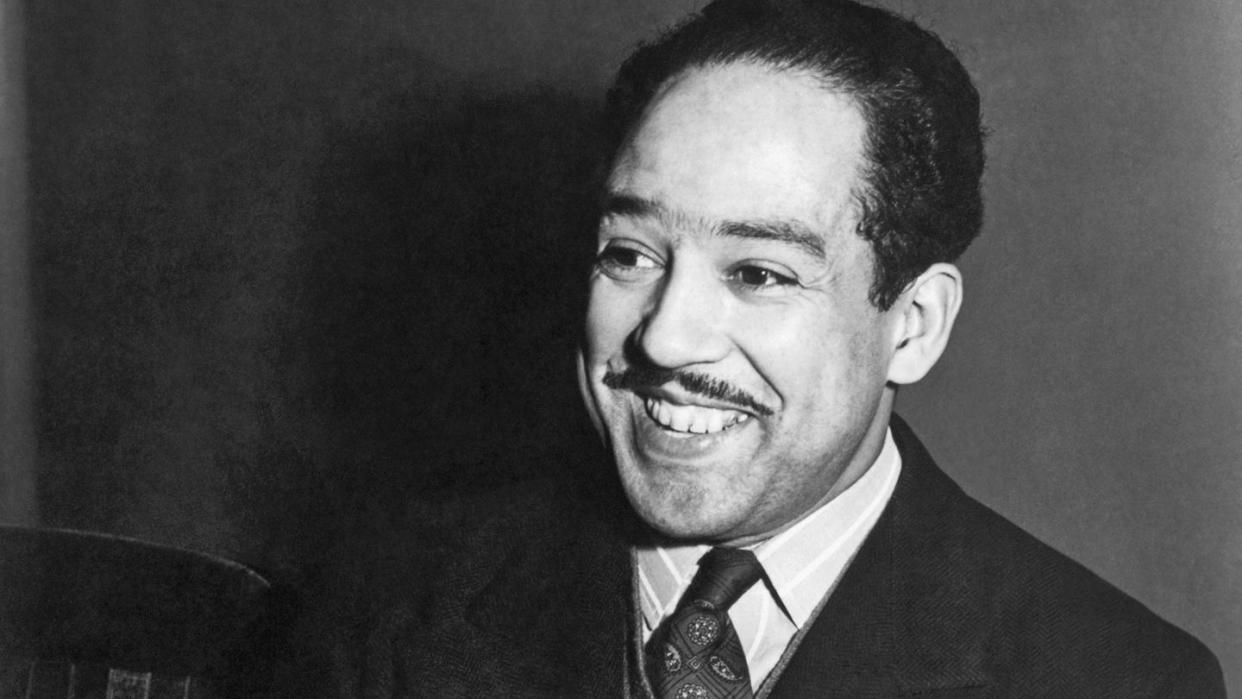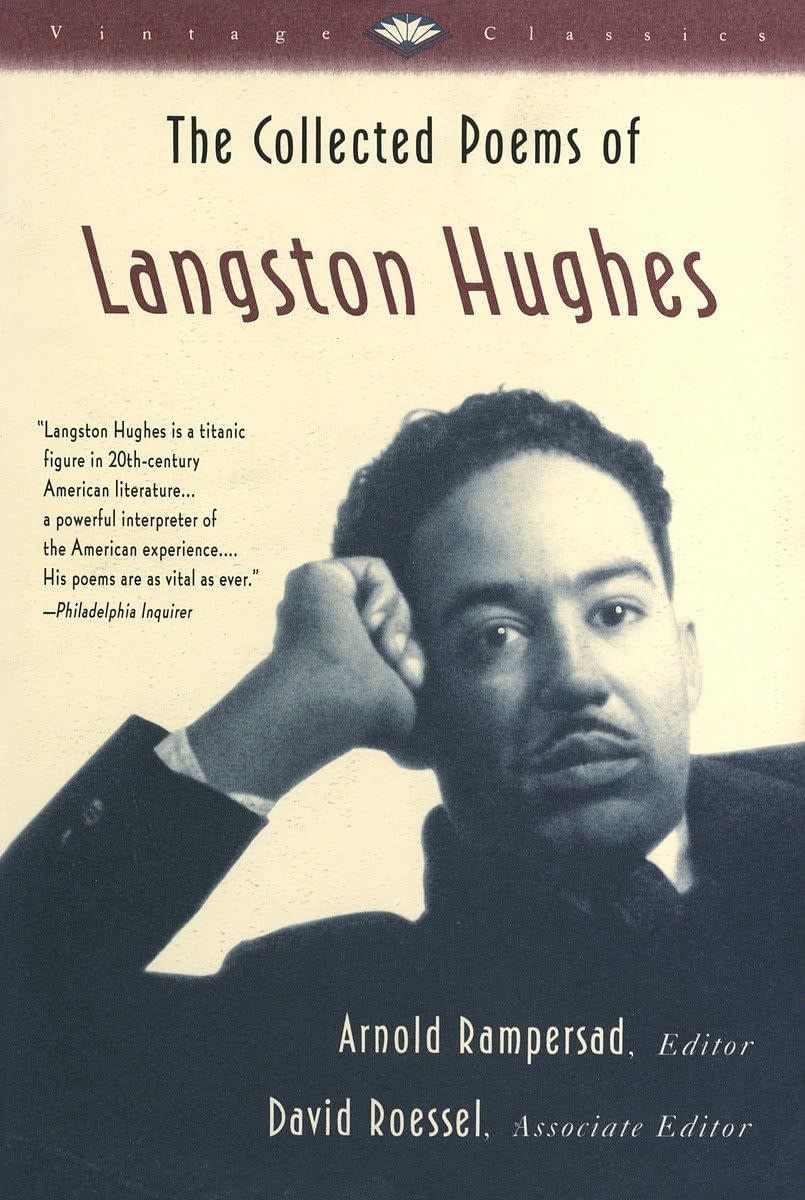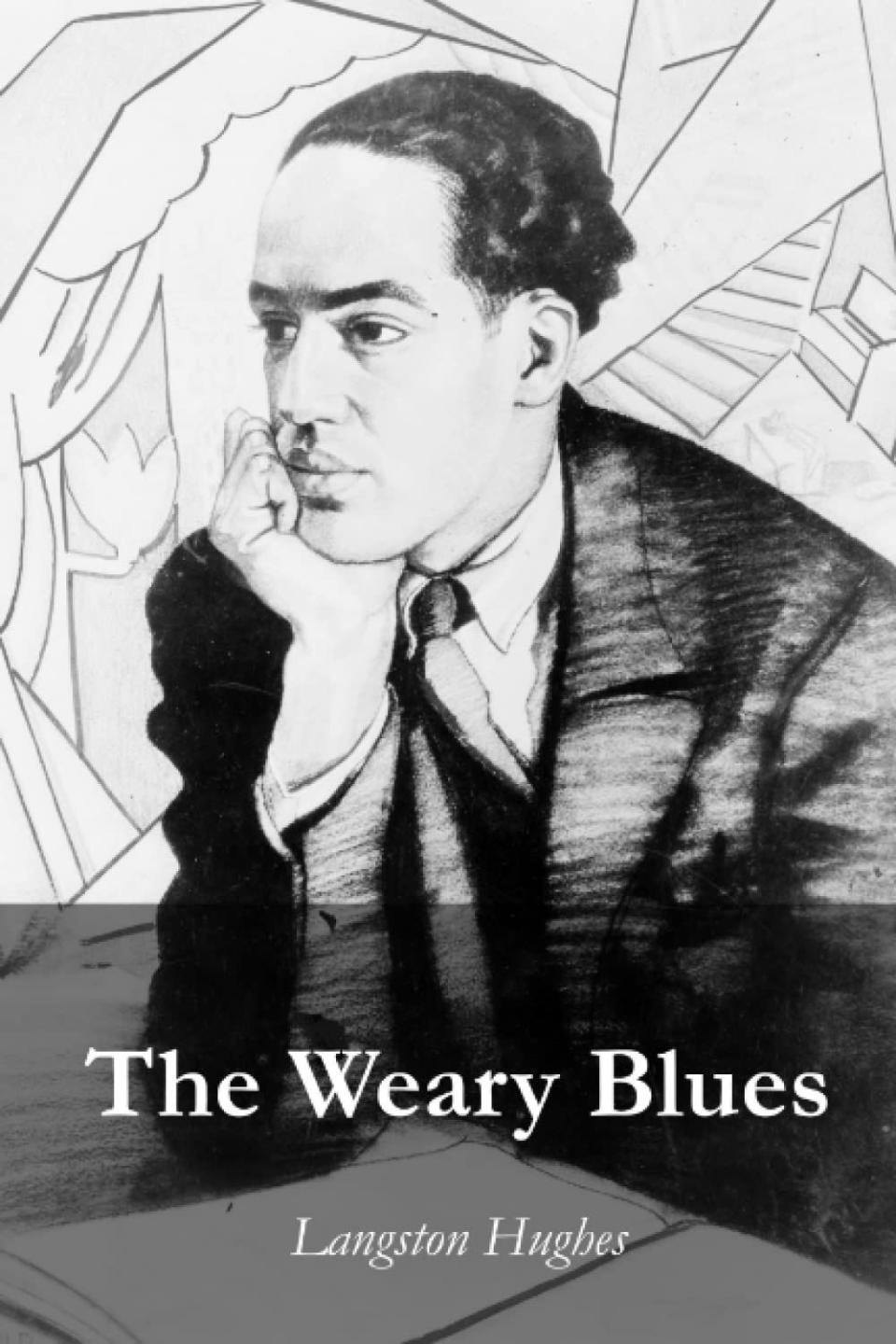10 Langston Hughes Poems That Capture the Heart of America

- Oops!Something went wrong.Please try again later.
- Oops!Something went wrong.Please try again later.
"Hearst Magazines and Yahoo may earn commission or revenue on some items through these links."
Five years after his first poem was published, Langston Hughes wrote in The Nation, “An artist must be free to choose what he does, certainly, but he must also never be afraid to do what he might choose.” He abided by these words throughout his career, centering everyday lives of Black people like himself, uncommon subject matter at a time when legal segregation reigned. Lyrical yet direct, Hughes’ poems made him a leading voice of the Harlem Renaissance and remain influential today.

The Collected Poems of Langston Hughes
amazon.com
$16.29
His writing career began the year after he graduated from high school with the 1921 poem “The Negro Speaks of Rivers.” His first book of poetry, The Weary Blues, followed in 1926. Throughout his work, Hughes portrayed working-class African Americans in a range of common experiences, both positive and negative. The New York City transplant was among the first poets to adapt jazz rhythms and dialect on the page. So groundbreaking was his work that Hughes wasn’t convinced he could earn a living as a writer until 1930, ultimately becoming one of the first Black Americans to do so.
Some of his most famous poems include “I, Too,” “Dreams,” and “Harlem,” which influenced playwright Lorraine Hansberry and civil rights activist Martin Luther King Jr., among many others. Beyond poetry, Hughes wrote novels like 1930’s Not Without Laughter, short stories, the autobiographies The Big Sea (1940) and I Wonder as I Wander (1956), and plays like Mulatto. He even worked as a war correspondent during the Spanish Civil War in 1937 for several American newspapers and as a columnist for the Chicago Defender.
In 1967, the well-traveled writer died of cancer in his mid-60s, yet his legacy has endured. His brownstone home in Harlem became a historic landmark in 1982, schools bear his name, and most of all, his poetry still resonates. Here are 10 essential poems by Langston Hughes that capture of the heart of America.
“The Negro Speaks of Rivers” (1921)
Written when he was 17 years old on a train to Mexico City to see his father, “The Negro Speaks of Rivers” was Hughes’ first published poem. It appeared in the June 1921 issue of the NAACP magazine The Crisis and received critical acclaim. The opening lines show a soul deeper than his age: “I’ve known rivers / I’ve known rivers ancient as the world and older than the flow of human blood in human veins / My soul has grown deep like the rivers.” The style honors that of his poetic influences Walt Whitman and Carl Sandburg, as well as the voice of African American spirituals.
“Mother to Son” (1922)
With recitations from notable figures such as Martin Luther King Jr. and actor Viola Davis, “Mother to Son” was published in the December 1922 issue of The Crisis. The 20-line poem traces a mother’s words to her child about their difficult life journey using the analogy of stairs with “tacks” and “splinters” in it. But ultimately she encourages her son to forge ahead, as she leads by example: “So boy, don’t you turn back / Don’t you set down on the steps / ’Cause you finds it’s kinder hard / Don’t you fall now / For I’se still goin’, honey / I’se still climbin’ / And life for me ain’t been no crystal stair.”
“Dreams” (1922)
One of several Hughes poems about dreams and fittingly titled, this 1922 poem appeared in World Tomorrow. “Dreams,” an eight-line poem, remains a popular inspirational quote. It partially reads: “Hold fast to dreams / For if dreams die / Life is a broken-winged bird / That cannot fly.”
“The Weary Blues” (1925)

The Weary Blues by Langston Hughes
amazon.com
$4.20
“The Weary Blues” follows an African American pianist playing in Harlem on Lenox Avenue. It starts off sounding like he’s completely carefree but ends: “The stars went out and so did the moon / The singer stopped playing and went to bed / While the Weary Blues echoed through his head / He slept like a rock or a man that’s dead.”
After it won a contest in Opportunity magazine, Hughes called it his “lucky poem.” Sure enough, the next year, his first poetry collection was published by Knopf with the same title. Hughes was 24.
“Po’ Boy Blues” (1926)
As one of four Hughes poems that appeared in the November 1926 issue of Poetry Magazine, as well as his collection The Weary Blues, this poem feels music-like with its stanza and rhymes. The final verse reads: “Weary, weary / Weary early in de morn. / Weary, weary / Early, early in de morn. / I’s so wear / I wish I’d never been born.”
“Let America Be America Again” (1936)
First published in the July 1936 issue of Esquire magazine, “Let America Be America Again” highlights how class plays such a crucial role in the ability to realize the promises of the American dream. The three opening stanzas are each followed by a parenthetical representing the cast-off realities for the lower class, such as: “Let America be America again / Let it be the dream it used to be / Let it be the pioneer on the plain / Seeking a home where he himself is free / (America never was America to me.)”
“Life is Fine” (1949)
Perseverance pushes through all the odds—even suicide attempts—in “Life is Fine.” Broken into three sections, the first part talks about jumping into a cold river: “If that water hadn’t a-been so cold / I might’ve sunk and died.” And the second about going to the top of a 16-floor building: “If it hadn’t a-been so high/ I might’ve jumped and died.” But in the third section, it says, “But for livin’ I was born” before ending with “Life is fine! / Fine as wine! / Life is fine!”
“I, Too” (1945)
In “I, Too,” Hughes addresses segregation head-on: “I am the darker brother / They send me to eat in the kitchen / When company comes.” Despite being hidden in the back, he continues to “laugh,” “eat well,” and “grow strong.” The subject looks to a future of equality, emphatically declaring “I, too, am America.”
“Harlem” (1951)
Perhaps his most influential poem, “Harlem” starts with the line “What happens to a dream deferred? / Does it dry up like a raisin in the sun?” The poem digs into the dichotomy of the idea of the American dream juxtaposed with the reality of being in a marginalized community. Hughes’ words inspired the title of Lorraine Hansberry’s 1959 play A Raisin in the Sun about a struggling Black family, and Martin Luther King Jr. referenced it in a number of his sermons and speeches.
“Harlem” was actually conceived as part of a book-length poem, Montage of Dream Deferred. With more than 90 poems strung together in a musical beat, the full volume paints a full picture of life in Harlem during the Jim Crow era, most questioned in this poem’s final line, “Or does it explode?”
“Brotherly Love” (1956)
Despite the fact that Hughes was more of a household name than King at the time, the poet wrote “Brotherly Love” about the civil rights activist and the Montgomery bus boycott, which starts: “In line of what my folks say in Montgomery / In line of what they’re teaching about love / When I reach out my hand, will you take it — / Or cut it off and leave a nub above?” It was yet another work in which Hughes tackled the idea of racial equality.
You Might Also Like

